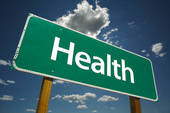
Sun exposure can cause hyperpigmentation in the skin. Hyperpigmentation is when the skin gets areas of increased melanin causing the skin to have dark spots. The dark spots cause the skin to look blotchy. Using natural skin whiteners made out of products normally found in homes, you can whiten your skin and reduce hyperpigmentation without the risks of chemical burns that are associated with some chemical based skin whiteners.
1. Wash your skin twice a day with a mild soap and a wash cloth. Use the wash cloth to rub the soap in the skin and to rinse the soap off the skin. The wash cloth mildly exfoliates the skin to encourage the shedding of dead skin cell.
2. Apply a skin brightening tomato and lime juice mask to the skin every morning before you wash your skin. To make the brightening mask, blend 1 tomato and the juice of 1 lime in a blender. Apply a thin layer of the brightening mask to the skin and leave on for 15 minutes. The extra amount of brightening mask can be stored in a closed container in the refrigerator for up to 1 week. After 15 minutes, rinse the skin with cold water. Wash skin with a mild soap and a wash cloth. The tomato and lime whiten the skin and give it a bright appearance. The lime juice may cause a stinging sensation on the skin; this is normal. With regular use, skin becomes accustomed to the lime juice and the stinging sensation lessons.
3. Apply a moisturizing honey and lemon juice mask before bed every night, before you wash your skin. To make the mask, mix one teaspoon of honey with one teaspoon of lemon juice. Apply the mask to the skin and leave it on for 15 minutes. After 15 minutes, rinse the mask off with warm water. Wash skin with a mild soap and a wash cloth. The honey moisturizes the skin, and the lemon whitens the skin. The lemon may cause a stinging sensation on the skin while the mask is on; this is normal. With regular use, skin becomes accustomed to the lemon juice and the stinging sensation lessons.
4. Apply organic Aloe Vera gel to the skin twice a day (morning and night), after washing the skin. Aloe Vera gel is a moisturizer that heals skin irritation and lightens the skin.
5. Exfoliate your skin once a week with sugar and olive oil. Mix 1 tablespoon of olive oil with one tablespoon of white granulated table sugar to make a paste. To use this exfoliant, use your fingers to gently rub the paste into the skin using a circular motion. Be careful around the eye area to avoid getting the paste into the eyes. The exfoliant removes old dead skin cells off the surface layer of the skin, exposing new fresh skin and encouraging the growth of new skin.
(Source: ehow.com)





